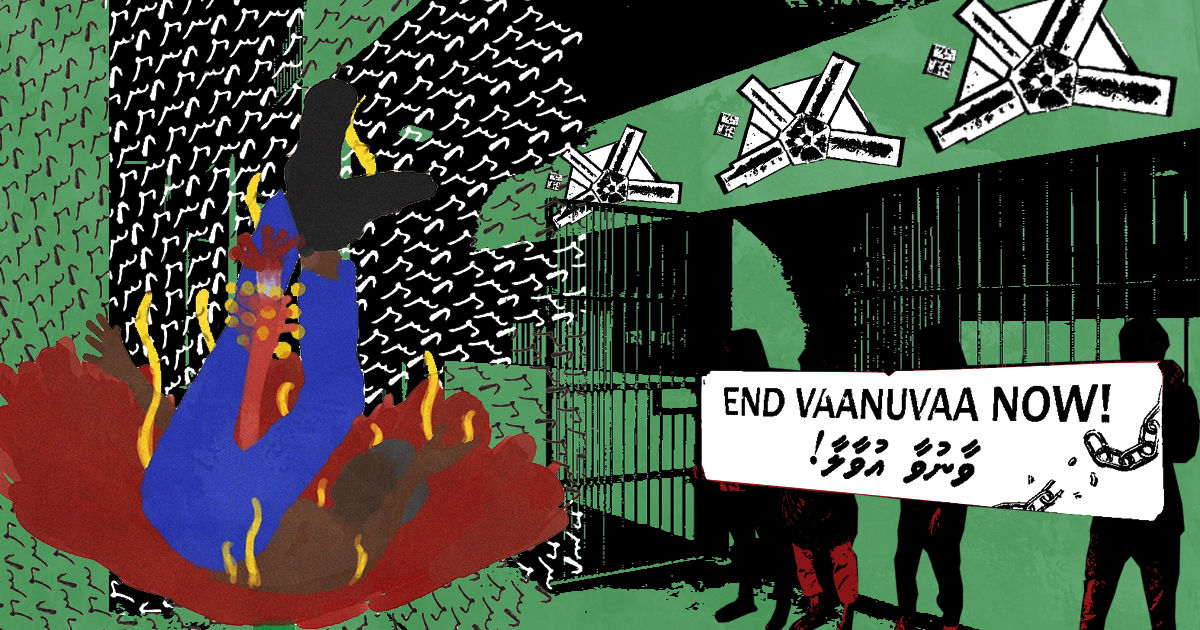‘Vaanuvaa’: is justice delayed justice denied?
Our Ithuru Vaahaka podcast looks into the Maldives’ pre-trial detention problem which has left some defendants waiting up to a decade for their cases to be resolved.

Artwork: Dosain
What is ‘Vaanuvaa’?
110 are accused of drug trafficking
108 face charges of sexual offences, including child sexual abuse
70 are detained for alleged murder, gang violence, and fighting
17 are being held in connection with terrorism-related acts
A small number are facing charges related to money laundering, fraud and corruption.
Legal guarantees
Meeting with the President
Proposed Reforms
Discussion
No comments yet. Be the first to share your thoughts!
No comments yet. Be the first to join the conversation!
Join the Conversation
Sign in to share your thoughts under an alias and take part in the discussion. Independent journalism thrives on open, respectful debate — your voice matters.




